If you would like to subscribe to receive our regular newsletter for all important events and updates, please complete the information below.
Image by Dan Alcade under a CC BY-NC-ND license.
Pandemic-Proofing Humanities Scholarship
Prof. Martin Eve (Birkbeck) recently delivered one of two keynote lectures at the CHASE Encounters Conference, which took place on 3–4 December 2020, hosted by Birkbeck, University of London. The biannual Encounters Conference is a chance for doctoral students to share ideas and research, build contacts and make networks across the eight institutions in CHASE: Sussex, Essex, Kent, UEA, Goldsmiths, the Courtauld, SOAS, and Birkbeck. Titled “Pandemic-Proofing Humanities Scholarship,” Prof. Eve’s lecture explores what the Covid-19 pandemic has revealed about our systems of academic publishing. Building on years of research in scholarly communications, Prof. Eve described the hidden infrastructures, labour and systems of preservation that make academic publishing possible but are frequently misunderstood by academics themselves. Analysing the exclusionary aspects of scholarly communications, Prof. Eve suggested that the histories of prestige that have shaped the publishing process (including peer review) are not as old or immutable as we might think. New modes of open publishing within the academy, he argued, make possible new kinds of engagement for humanities scholars. You can watch Prof. Martin Eve’s lecture below. Featured image by by Florian...
read moreEncounters in the Cloud
Prof. Esther Leslie (Birkbeck) recently delivered one of two keynote lectures at the CHASE Encounters Conference, which took place on 3–4 December 2020, hosted by Birkbeck, University of London. The biannual Encounters Conference is a chance for doctoral students to share ideas and research, build contacts and make networks across the eight institutions in CHASE: Sussex, Essex, Kent, UEA, Goldsmiths, the Courtauld, SOAS, and Birkbeck. Titled “Encounters in the Cloud,” Prof. Leslie’s lecture offered a “meditation on the contours of the present and the possibilities and impossibilities within the encounter, as it is mediated by our devices.” Examining our “bizarre and exaggerated actuality,” Prof. Leslie traced issues such as artificially generated online identities used for social media presences (faces that are born and die continually within the cloud), alongside the Romantic aesthetics of cloud-as-possibility, storage space, and material cloud infrastructures in data centres. As Prof. Leslie notes in the lecture: “the vagueness of the cloud and its institutions is countermanded by the concretion of its infrastructure.” You can watch Prof. Leslie’s lecture below. Featured image by Jené Stephaniuk on...
read moreBecoming Utopian Roundtable
Friday 29th January 2021, 6-8pm (online, booking required) In honour of Prof. Tom Moylan, Glucksman Professor Emeritus at the Ralahine Centre for Utopian Studies (University of Limerick), we're delighted to be hosting a roundtable discussion on the subject of "Becoming Utopian." Borrowed from the title of Tom Moylan's new essay collection, Becoming Utopian: The Culture and Politics of Radical Transformation (Bloomsbury 2020), the roundtable will be chaired by the CCL Director Dr Caroline Edwards, with Tom Moylan as respondent, and will feature Prof. Raffaella Baccolini (Dipartimento di Interpretazione e Traduzione, Università di Bologna), Heather McKnight (University of Sussex) and Dr Tim Waterman (The Bartlett School of Architecture, University College London). Becoming Utopian explores the dynamic relationship between the transformative utopian impulse and radical political action. It elucidates the utopian process through studies of sociopolitical theory and practice (utopian theory, ecological activism, nonviolence, radical pedagogy, community organizing), doing so with the help of critical theory, secular/post-secular hermeneutics, and the science fictional imaginary. While each chapter grows from the time it was written, each adds a facet to this contemporary prismatic exploration of utopian transgression and transformation. Developing his framework through a dialectical interaction with the problematics of Fredric Jameson and Ruth Levitas, Moylan focuses on the initial (utopian) political consciousness that develops out of a “break” (Badiou) with the hegemonic order and moves through a “gestalt shift” (Goodman and Perls) toward a horizon of a better world for humanity and nature. He traces the ways by which this utopian process produces new structures of feeling and formations (Williams) that can enable humanity to grow from alienation to action. Becoming Utopian offers a timely holistic reflection on how humans can confront and transform the conditions produced by the global environmental, economic, political, and cultural crises that beset us in this time of trouble. Below is a recording of the roundtable. Featured image by Tim Mossholder via...
read moreTade Thompson Q&A
We were thrilled to be joined by Tade Thompson, author of the award-winning Rosewater trilogy, for a special Q&A session with students studying on our MA Contemporary Literature and Culture and MA Creative and Critical Writing on 16th November 2020. We had studied Rosewater (2016), the first novel in the trilogy, as a recent example of what Natalia Cecire and Sam Solomon have termed the utopian “mycological promise” of fungi, in which natural, ancient, and magical energy systems convert decay and waste into nitrogen-fixing, plant-sustaining mycelium. Thompson’s trilogy depicts an alien fungal network known as Wormwood that is described as “protecting, nurturing” and is capable of miraculously healing, or worsening the conditions of, disabled people who visit it. Students explored Rosewater within the context of contemporary environmental posthumanism, as a narrative that deconstructs species boundaries between the human, the fungal, and the alien to offer an Afrofuturist speculative vision of what radical botanists and posthumanist theorists would call “becoming-plant,” reanimating the monstrous vegetal in contemporary ecocatastrophe narratives. A huge thank you to Tade for graciously offering his time after a full day's work during a very busy period of the Covid-19 lockdown! You can watch the full Q&A below, which was chaired by Dr Caroline Edwards and Dr Sean O'Brien, both lecturers at Birkbeck. Featured image by RAS News and Events shared under a CC BY-NC-ND...
read moreCaryl Phillips Lecture
This year, Birkbeck is delighted to welcome acclaimed author and playwright Caryl Phillips to deliver the annual William Matthews Lecture. Titled ” ‘One Grim Winter Evening’: The Colonial Migrant in Britain,’ the lecture will take place on Thursday 12th November 2020, 6-7pm online. ‘One grim winter evening’ are the opening four words of Samuel Selvon’s classic novel, The Lonely Londoners (1956). As Phillips writes: “Selvon’s depiction of London as both hostile and a place that his characters hold dear in their hearts, always puzzled me. I grew up as part of a generation who were quick to reject Britain’s negative attitudes towards her non-white population. We were ‘radical’ and quick to push back, while the earlier generation appeared to be stubbornly determined to belong. I will look again at this postwar migration from the colonies into a not always welcoming Britain, and think about how this colonial migration differed from political or economic migration.” Caryl Phillips was born in St. Kitts and came to Britain at the age of four months. He grew up in Leeds, and studied English Literature at Oxford University. He began writing for the theatre and his plays include Strange Fruit (1980), Where There is Darkness (1982) and The Shelter (1983). He won the BBC Giles Cooper Award for Best Radio Play of the year with The Wasted Years (1984). He has written many dramas and documentaries for radio and television, including, in 1996, the three-hour film of his own novel The Final Passage. He wrote the screenplay for the film Playing Away (1986) and his screenplay for the Merchant Ivory adaptation of V.S.Naipaul’s The Mystic Masseur (2001) won the Silver Ombu for best screenplay at the Mar Del Plata film festival in Argentina. His novels are: The Final Passage (1985), A State of Independence (1986), Higher Ground (1989), Cambridge (1991), Crossing the River (1993), The Nature of Blood (1997), A Distant Shore (2003), Dancing in the Dark (2005), Foreigners (2007), In the Falling Snow (2009), The Lost Child (2015), and A View of the Empire at Sunset (2018). His non-fiction: The European Tribe (1987), The Atlantic Sound (2000), A New World Order (2001), and Colour Me English (2011). He is the editor of two anthologies: Extravagant Strangers: A Literature of Belonging (1997) and The Right Set: An Anthology of Writing on Tennis (1999). His work has been translated into over a dozen languages. He was named Sunday Times Young Writer of the Year in 1992 and was on the 1993 Granta list of Best of Young British Writers. His literary awards include the Martin Luther King Memorial Prize, a Guggenheim Fellowship, a British Council Fellowship, a Lannan Foundation Fellowship, and Britain’s oldest literary award, the James Tait Black Memorial Prize, for Crossing the River which was also shortlisted for the 1993 Booker Prize. A Distant Shore was longlisted for the 2003 Booker Prize, and won the 2004 Commonwealth Writers Prize; Dancing in the Dark won the 2006 PEN/Open Book Award. He is a Fellow of the Royal Society of Literature and the Royal Society of the Arts, and recipient of the 2013 Anthony N. Sabga Caribbean Award for Excellence. He has taught at universities in Ghana, Sweden, Singapore, Barbados, India, and the United States, and in 1999 was the University of the West Indies...
read moreWriting Shame
Birkbeck is delighted to welcome Dr Kaye Mitchell (University of Manchester) for the first Bloomsbury Research Lecture of the year. Dr Mitchell will talk about her recently published book Writing Shame: Gender, Contemporary Literature and Negative Affect (Edinburgh University Press, 2020). Through readings of an array of recent texts – literary and popular, fictional and autofictional, realist and experimental, this book maps out a contemporary, Western, shame culture. It unpicks the complex triangulation of shame, gender and writing, and intervenes forcefully in feminist and queer debates of the last three decades. Starting from the premise that shame cannot be overcome or abandoned, and that femininity and shame are utterly and necessarily imbricated, Writing Shame examines writing that explores and inhabits this state of shame, considering the dissonant effects of such explorations on and beyond the page. About the Author: Dr Kaye Mitchell is Senior Lecturer in Contemporary Literature and Co-Director of the Centre for New Writing at the University of Manchester. She is a literary and cultural critic with particular interests in modern and contemporary literature, literary theory, gender and sexuality studies, and experimental writing by women. She has published books on literary intention (Intention and Text, Continuum, 2008) and contemporary literature (A.L. Kennedy, Palgrave, 2007; Sarah Waters, ed. collection with Bloomsbury, 2013). Her work in progress includes a monograph on the politics and poetics of shame in contemporary literature, and a special issue on women's experimental writing for the OUP journal, Contemporary Women's Writing. Kaye Mitchell's research is mainly in contemporary literature and culture, with a particular focus on gender and sexuality, critical theory and narratology. The lecture will take place from 7.30pm on Thursday 29th october 2020. Please click on this link to join. Featured image: Chris Kraus in Conversation with Kim Dower by WeHoCity under a CC BY-NC-ND...
read moreUtopian Enclaves in Feminist Cyberpunk
One of our talented PhD researchers, Sasha Myerson, has recently produced this video essay on "Utopian Encalves: The City in Feminist Cyberpunk." The video essay replaces Sasha's conference paper presentation at the Cyberpunk Culture conference, taking place online on 9-10 July 2020. Abstract: Cyberpunk is conventionally considered a dystopian genre. But, as Tom Moylan has argued, there is a sharp difference between dystopias of resignation—which capitulate to the logics of neoliberalism—and critical dystopias, which “adopt a militant stance that is informed and empowered by a utopian horizon that appears in the text”. Such texts seek to overcome dystopia, find a way beyond it, and transform the present moment towards utopia. Furthermore, cyberpunk is a genre deeply rooted in urban experience, recalling both the dense neon-soaked streets of William Gibson’s Neuromancer (1984), or Ridley Scott’s Blade Runner (1982), and the hyperreal, fragmented urban spectacle that appears in the works of Jean Baudrillard and Frederic Jameson. Yet, such spectacle is not necessarily synonymous with dystopia. As feminist geographer Elizabeth Wilson writes, “the excitement of city life cannot be preserved if all conflict is eliminated […] life in the great city offers the potential for greater freedom and diversity than life in small communities. This is particularly important for women.” Wilson’s vision of the city calls for a radical embrace of “the freedom and autonomy they offer”, while making such freedom “available to all classes and groups.” This paper will read Emma Bull’s Bone Dance (1991) and Naolo Hopkinson’s Brown Girl in the Ring (1998), both texts that work within the genre of cyberpunk, through the critical lens of Moylan and Wilson. Both authors recognise the contradictions of the city, a space often built upon exclusion and inequality that can simultaneously incubate surprising political alliances and glimpses of utopia. My analysis will focus specifically on two passages, the opening of Hopkinson’s text and the ending of Bull’s, which take the conventions of the cyberpunk city and locate within it the potential for a non-hierarchical, diverse and utopian vision of the city that “shimmers just beyond” their pages Bio: Sasha is a PhD student at Birkbeck College. Her research focuses on urban space and the built environment in 1990s feminist Cyberpunk science-fiction. Examining posthuman and multiple subjectivities, her work explores how such individuals navigate, survive and resist within technologized cities of surveillance and discipline. Sasha is a co-director of the London Science-Fiction Research Community and helps to organise Beyond Gender, a feminist research collective. For more information see here: http://cyberpunkculture.com/cyberpunk-culture-conference/program-friday/%C2%A726-sasha-myerson/...
read moreCrisis and Contemporary Literature
CCL Director Dr Caroline Edwards recently spoke on the opening roundtable at the Virtual Conference for the British Association for Contemporary Literary Studies (BACLS), which was held on Friday 26 June 2020. The theme of the roundtable was "Crisis: Contemporary Conversations" and Caroline spoke alongside: Sheena Kalayil, author of The Bureau of Second Chances (2017), which won the Writers’ Guild Award for Best First Novel, The Inheritance (2018) and The Wild Wind (2019); Ben Doyle, Publisher for Literary Studies at Bloomsbury Academic; and Dr Zayneb Allak, a writer and Lecturer in Creative Writing at Edge Hill University. Caroline's talk explored the relationship between utopianism as a praxis that responds to historical crises and science fiction, focussing particularly on ecocatastrophe narratives (the subject of her next book provisionally titled Arcadian Revenge: Science Fiction in the Era of Ecocatastrophe). You can watch her talk below or here on Caroline's YouTube channel. For more information about the British Association for Contemporary Literary Studies (BACLS), visit the website: https://www.bacls.org/ Photo by Callum...
read moreExploring Physician Burnout
Birkbeck CCL member and Director of the Birkbeck Centre for Medical Humanities, Prof. Jo Winning, has just published a new article in the BMJ Medical Humanities journal on "The use of an object: exploring physician burnout through object relations theory." The article (see below) examines the crisis of physician burnout, which has been widely and repeatedly reported across the mainstream press and medical journals around the world in the closing years of the second decade of the 21st century. Despite multiple systematic reviews and commentary on the scale of this ‘global epidemic’, understandings of both the phenomenon and the most effective interventions remain limited. Practice-based medical humanities represents the collaborative sharing of conceptual tools for understanding illness and clinical practice and the shouldering of responsibility for mapping the shape of care, in all its local, national and global contexts, thinking-with rather than critique on the profession and its practices. In keeping with this approach, this article offers a new perspective on the contemporary crisis of physician burnout by exploring the objectification of the clinician’s body within the systems and practice of healthcare. Within the context of medical humanities’ scholarship, discussions of objectification usually navigate towards a discussion about patient identity and its potentially reductive objectification within the frameworks of biomedical science. However, this article crosses the cultural divide between clinician and patient, and comes to focus on the objectification of the clinician herself, using object relations theory from the field of psychoanalysis to excavate the psychodynamics of care and their impact on clinicians, and the systems of healthcare in which care is delivered. Jo's article develops the feminist epistemological concept of 'thinking-with', alongside Donna Haraway's concept of tentacular thinking, which she has also written about in a recent article published in the journal Feminist Encounters (see here for info on this). (If you can't see the article embedded below just hit refresh). Featured image by Rob Rogers, reproduced in Jo's article with permission and shared here under a CC BY-NC...
read moreAsylum Monologues
by Dr Agnes Woolley, Lecturer in Transnational Literature and Migration Cultures One of the Arts Weeks at the School of Arts this year coincided with Refugee Week (15th-21st June) and this performance from Ice and Fire’s Actors for Human Rights kicked off their virtual tour of the UK. With a pared down performance style based on the verbatim testimony of asylum seekers, Asylum Monologues is well-suited to on screen delivery and listening to the testimony of asylum seekers working their way through the UK system is a stark and timely reminder of the iniquities embedded in so many of our institutional and procedural structures. Much of my work has been concerned with issues of representation and voice in the context of refugee narratives. What forms and in what fora do we encounter refugee stories? What are the ethics of representation in this context? And how have refugees found ways to give voice to their experiences outside the legal infrastructure of the asylum adjudication process? The idea of voice and voicing experience has been – since the middle of last century – the preeminent way in which human rights are analysed and asserted. And I would say that testimony has become the prevailing narrative mode for refugee experience. But the testimonial forms we find in documentary, film and performances like Asylum Monologues are also intricately linked to the legal process to which asylum seekers are subject, where they must testify to a narrative of persecution. The United Nations Convention Relating to the Status of Refugees, first ratified in 1951, continues to be the basis for asylum claims in most refugee-receiving countries (although the African Union has a different and more expansive definition for the continent that has a much larger proportion of the world’s refugee than Europe). The Convention defines a refugee as one who has a ‘well-founded fear of persecution’. Enacted at the level of the signatory nation state, the procedural characteristics of the asylum decision-making process thus demand a particular narrative of persecution for the conferment of refugee status and inclusion in the civic body. For this reason, perhaps more than any other aspect of human rights legislation, the Convention Relating to the Status of Refugees depends almost entirely on the story of the claimant. But claimants have very little agency over this story in the legal realm because the process operates on a particularly restrictive set of narrative conditions. On the whole asylum seekers must answer questions, rather than be allowed to tell their story in their own way. Translators can often be a barrier to expression if, for example, they speak a different dialect or if the translator represents a political, ethnic or gender identity that the claimant considers a threat. The memorial revisions of trauma are rarely accounted for. And, because asylum seekers must conform to the definition of a refugee as laid out in the Convention, the system produces an idealized version of refugeehood. This version circulates in a narrative economy – comprising not only the legal asylum process, but also media and advocacy fora – where refugees must represent themselves as good, compliant and grateful. This last idea, Dina Nyeri takes up in her recent book The Ungrateful Refugee (2019). Crucially, the asylum system seeks to pin claimants down to a single version of events...
read more


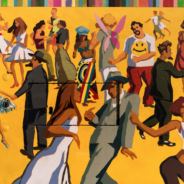
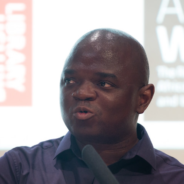
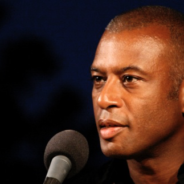
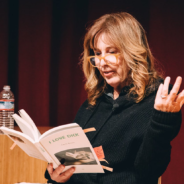
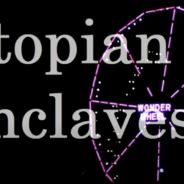
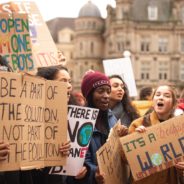
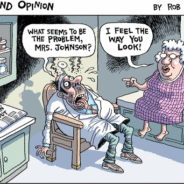
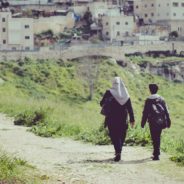
Recent Comments